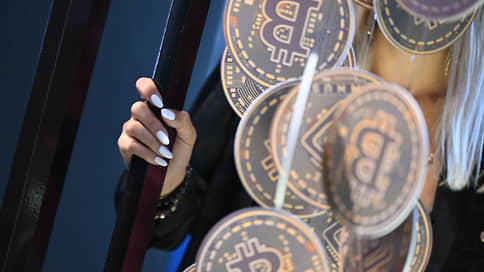The European Union slammed crypto wallets – Newspaper Kommersant No. 186 (7387) of 07.10.
[ad_1]

The new package of EU sanctions has significantly affected the crypto assets of Russians. The ban concerns the ability to open wallets, store cryptocurrency and use the services of European crypto companies. Against this background, there is a risk of asset blocking for many Russian citizens. However, experts believe that some of the exchanges will not restrict the activity of Russian citizens. In addition, there are decentralized sites that do not carry out operations to identify the client. However, in this case, the exchange rates will not be very profitable.
The European Union has tightened sanctions against Russia in terms of cryptocurrencies. According to the European Commission (.pdf), companies with a European license are prohibited from opening accounts and crypto wallets for Russians. Previously, there was a limit on the amount of assets – € 10 thousand. At the end of February, restrictions, in particular on opening wallets, trading cryptocurrencies on exchanges and similar operations, were introduced for Russian citizens by small market participants on their own initiative (see “Kommersant” dated February 28). However, in March, Coinbase blocked tens of thousands of wallets associated with Russian individuals (see “Kommersant” dated March 7), in April, the Binance crypto exchange suspended Russian clients from trading who had more than €10,000 on their accounts.
In the current situation, experts interviewed by Kommersant call the possible blocking of assets the main risk.
If a company is registered in the European Union, it is forced to prohibit Russian citizens from using its services, personal accounts and storing cryptocurrencies, Vladislav Utushkin, founder of the ToTheMoon group of companies, explained. “This can affect not only exchanges, but also Ledger and Trezor (companies that issue cold crypto wallets, that is, working from a physical medium.— “b”),” he says. Moreover, if the company is not European, then it can also implement this ban if the international community so requires, Mr. Utushkin points out. This ban, most likely, cannot be bypassed by a regular VPN connection, since centralized exchanges have a KYC (“know your customer”) procedure. “But if this happens with decentralized exchanges, then a VPN should save,” the expert believes.
Citizens of the Russian Federation should be allowed to withdraw their assets, but freezing of accounts with all assets is possible, Roman Kaufman, co-founder of Berezka DAO, expects. Now, in his opinion, citizens of the Russian Federation can urgently withdraw their assets to a cold wallet or to services such as MetaMask, Trust Wallet and others. Persons who can demonstrate that they have a residence permit and an address in another country will not fall under the restrictions, added Maria Agranovskaya, managing partner of the Grad Bar Association.
However, most likely, there will be exchanges that will not restrict the inhabitants of the Russian Federation, as it was in the spring, market participants believe.
When many exchanges limited the deposit to €10,000, some of them did not react to this, Mr. Utushkin points out. Huobi and Bybit, which have not previously imposed any restrictions, will remain among the large centralized platforms, said Chen Limin, CFO and head of the trading operations department of the crypto fund ICB Fund. “For the exchange of crypto assets, it will be possible to use decentralized analogs of exchanges. The so-called DEXs – Uniswap, PancakeSwap, Curve and others – work on the algorithm of an automatic market maker, and their code does not require KYC verification, ”he said. However, rates outside centralized venues may not be as profitable, Tangem noted.
[ad_2]
Source link





